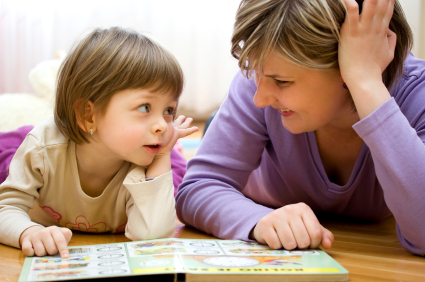Supporting Literacy development
From birth children are developing the knowledge and skills that are important foundations for later literacy development, even though it may be some time before they will develop the skills to read, write and verbally communicate in the conventional way. As educators we need to support the development of children’s emerging literacy skills through a variety of daily experiences and activities that show their child that speaking, reading, writing and listening have a real purpose and are an enjoyable part of daily life. It is important to use the child’s interests and current level of understanding to guide you in supporting their literacy development.
How can we do this with babies and toddlers?
- Talk with them about everyday experiences and what is happening around them, including explaining what is happening during routine activities such as feeding, bathing and nappy changing.
- Sing songs and say poems and rhymes with your child.
- Provide simple and sturdy books for your child to explore on their own, and look at books with your child, and talk about the pictures.
- Point out signs, pictures and logos. Older babies and toddlers often enjoy ‘spotting’ familiar images that relate to things they have seen in books or on television.
- Celebrate early mark makings
- Show children that you enjoy reading with them, and make this a special time for cuddles and one-to-one time. Reading stories can become a part of settling routines such as rest and bed times.

How can we do this with pre-schoolers?
- Write in front of children and explain what and why you are writing such as letters, lists, planning and other documentation
- Encourage children to “read” their own books, signs in the environment
- Read books every day and discuss the illustrations and context of the story
- Encourage children to create their own stories
- Sing songs, read poems and play with rhyme
- Provide rich and high quality drawing and writing materials to encourage children to develop their fine motor skills as well as representational skills
- Talk to children about their ideas and work
- Promote enthusiastic discussions and their environment, relationships, interests.
- Have high quality children’s books available at ALL times- both story and factual books

Value literacy and demonstrate to children how to use this respectfully
Leave a Reply